Top 10 Job Search Sites For Better Career 2025
In today’s dynamic job market, finding the right opportunity requires not just skills and experience, but the right tools. Job search sites have become essential for job seekers, offering a variety of features to match candidates with employers. Whether you’re looking for a full-time role, part-time work, freelance gigs, or an entry-level position, the following top 10 job search sites can help you navigate your career path in 2025.
1. Jobright
Jobright is a powerful and reliable job search site that allows job seekers to find their favorite positions online. It supports creating a profile, uploading your resume, and setting preferences for the type of job you’re seeking. The AI algorithm analyzes your qualifications and interests to recommend jobs, and you can apply directly through the site.
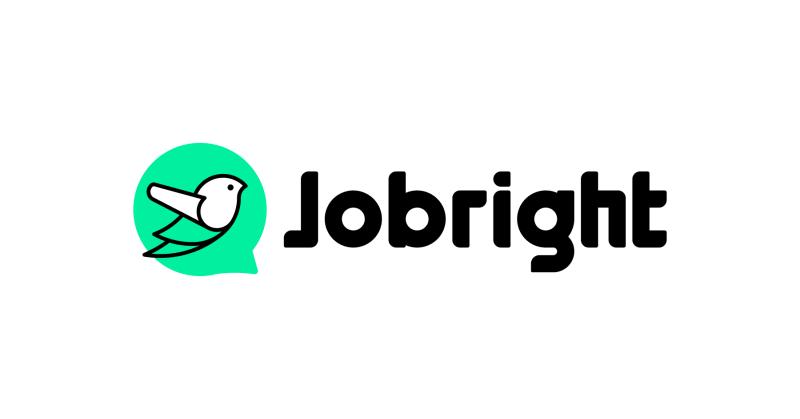
Tips for job seekers on Jobright:
It’s recommended that job seekers leverage the AI tools on Jobright to optimize their profile and stand out among millions of candidates.
Main Features:
- AI-driven Job Matching: Jobright uses artificial intelligence to match users with job opportunities that fit their skills and preferences.
- User-Friendly Interface: The platform is designed with simplicity in mind, allowing easy profile setup and job tracking.
- Real-Time Notifications: Users receive instant updates about new job listings matching their profiles and preferences.
Pros:
- Millions of job positions covering almost every industry.
- Personalized job recommendations make job searching efficient.
- Intuitive, easy-to-navigate platform.
- Mobile-friendly for job seekers on the go.
Cons:
The supported areas are limited at present.
2. Indeed
Indeed is a popular job search site for many users. Job seekers can search for jobs by keyword, location, company, or job title on Indeed. The site aggregates listings from various sources, including company websites, job boards, and staffing agencies. You can also upload your resume for employers to search.
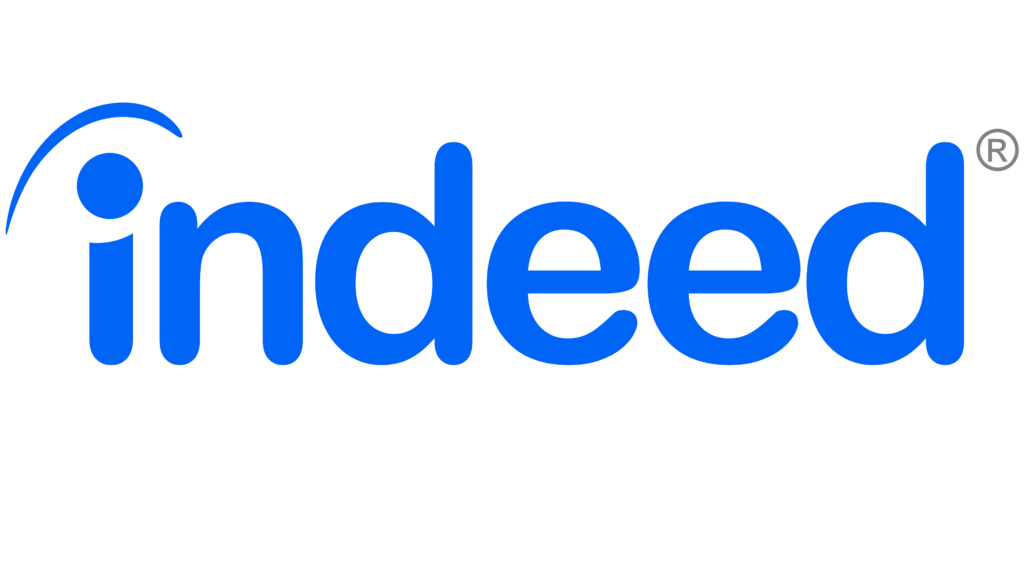
Tips for job seekers on Indeed:
Optimize your Indeed profile, use relevant keywords, set job alerts, research companies, and leverage Indeed’s resources like resume reviews and interview tips to enhance your job search success.
Main Features:
- Massive Job Database: Indeed is one of the largest and most popular job boards, offering millions of job listings worldwide.
- Resume Upload and Job Alerts: You can upload your resume for employers to find, and set up customized job alerts based on your criteria.
- Salary and Company Reviews: Access salary information and reviews from current or former employees to help evaluate potential employers.
Pros:
- Huge database of job listings across all industries and experience levels.
- Free resume posting and alerts for jobs that match your profile.
- Easy-to-use filters to narrow job searches.
Cons:
- With so many listings, the site can feel overwhelming, especially when sorting through numerous postings.
- Some listings may be outdated or reposted multiple times.
3. LinkedIn
Another recommended top job search site is LinkedIn. It allows job seekers to create a detailed professional profile, connect with people in your industry, and apply to job postings directly. You can also set up job alerts for roles that match your preferences.

Tips for job seekers on LinkedIn:
It’s necessary to use a professional photo, detailed experience, and keywords in your profile. Network actively, join industry groups, engage with content, and apply directly to tailored job postings for better opportunities.
Main Features:
- Professional Networking: LinkedIn is not only a job search platform but also a powerful networking tool. You can connect with hiring managers, recruiters, and industry professionals.
- Detailed Profiles: Showcase your skills, endorsements, work history, and certifications in a comprehensive profile.
- Job Matching and Alerts: LinkedIn recommends jobs based on your profile, activity, and preferences.
Pros:
- Great for networking and accessing hidden job opportunities.
- High-quality listings, especially for professional and executive roles.
- Offers additional tools like LinkedIn Learning for skill development.
Cons:
- Limited free features for premium accounts.
- Mostly geared toward white-collar professionals, which can exclude manual labor and entry-level positions.
4. Glassdoor
Glassdoor combines job listings with in-depth insights into companies, including reviews and salary data. You can apply for jobs and view detailed employer ratings to help you make informed decisions.

Tips for job seekers on Glassdoor:
Create a complete Glassdoor profile, research company reviews and salaries, set job alerts, tailor applications, and use interview insights to prepare effectively and find the right job opportunity.
Main Features:
- Company Reviews: Glassdoor allows employees to leave reviews about their workplace, including information on company culture, salary ranges, and work-life balance.
- Salary Insights: You can access average salary information for specific job titles and companies.
- Job Listings: Glassdoor offers job listings and allows job seekers to apply directly on the platform.
Pros:
- Great for researching employers before applying.
- Transparency in salary and company culture helps job seekers make better choices.
- Provides both job listings and company insights.
Cons:
- Smaller job pool than larger job boards like Indeed.
- Negative reviews can impact a company’s reputation, potentially skewing the view of the company.
5. Handshake
One more top-list job search site is Handshake. Students and recent graduates create profiles and upload resumes to Handshake. They can then apply for exclusive job opportunities posted by companies targeting recent graduates.
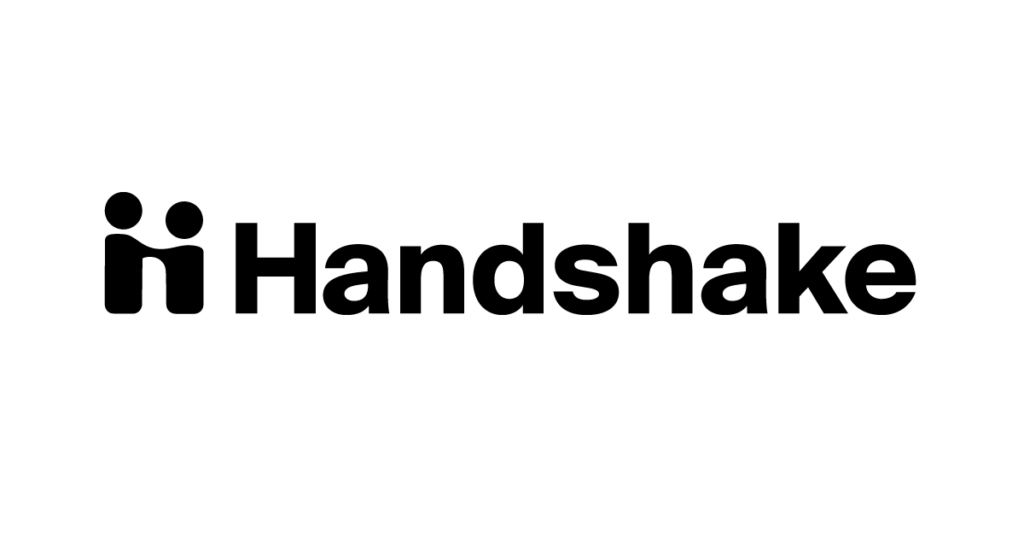
Tips for job seekers on Handshake:
It’s better to build a detailed Handshake profile, highlight academic achievements, network with recruiters, attend virtual events, and apply to internships or entry-level jobs tailored to students and recent graduates.
Main Features:
- University Partnerships: Handshake partners with universities to provide exclusive access to job listings targeted at students and recent graduates.
- Internship and Entry-Level Jobs: It specializes in internships and entry-level opportunities, helping students launch their careers.
- Personalized Job Recommendations: Based on your profile and academic history, Handshake provides tailored job and internship suggestions.
Pros:
- Ideal for fresh graduates and students seeking entry-level roles or internships.
- Exclusive job postings from top employers seeking young talent.
Cons:
- Limited options for experienced professionals or mid-career job seekers.
- Geared more toward specific industries and entry-level roles.
6. Upwork
Upwork is a well-known job search site mostly for freelancers and employers. Freelancers create profiles, search for job listings, and bid on projects. Employers review proposals and hire freelancers for specific tasks or long-term projects.
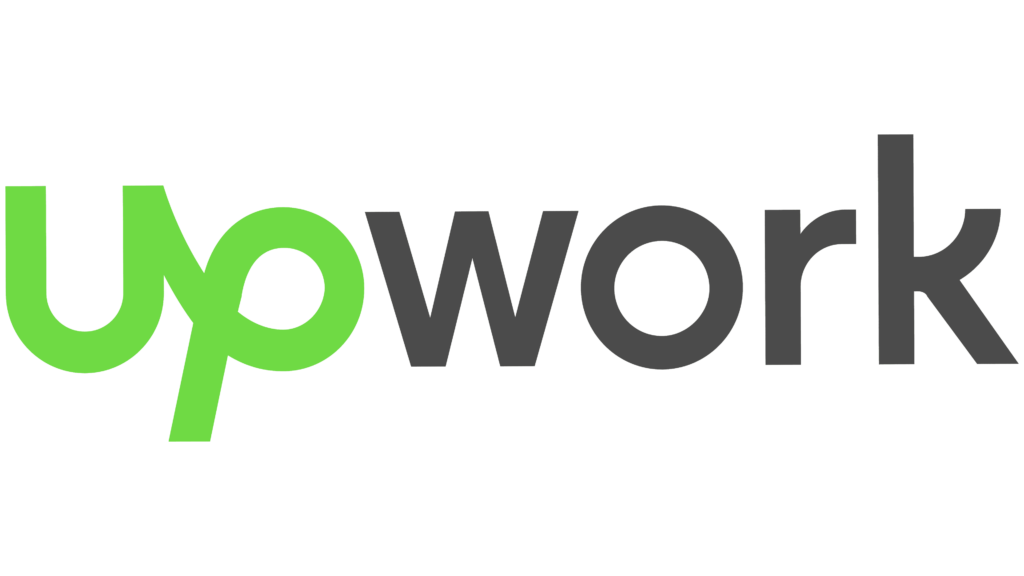
Tips for job seekers on Upwork:
Craft a standout Upwork profile, highlight skills with a strong portfolio, apply to tailored projects, set competitive rates, and maintain excellent communication to build trust and secure freelance opportunities.
Main Features:
- Freelance Marketplace: Upwork connects freelancers with clients across a variety of industries, including writing, design, software development, and customer service.
- Project-Based Work: Instead of traditional jobs, Upwork offers short-term, project-based work.
- Escrow Payment Protection: Clients deposit funds into an escrow account to ensure payment upon project completion.
Pros:
- A vast pool of freelance opportunities in different fields.
- Excellent for remote work and short-term contracts.
Cons:
- High competition for jobs can make it difficult for newcomers to land projects.
- Service fees apply to earnings, which can reduce overall income.
7. Wellfound (formerly AngelList)
The next recommended site for job searching is Wellfound. It allows job seekers to create a profile highlighting their skills and interests, and browse job listings from startups. You can apply directly to roles and communicate with hiring teams.

Tips for job seekers on Wellfound:
It’s essential to emphasize startup-relevant skills, tailor applications to roles, engage with startup teams, and highlight your entrepreneurial mindset to stand out in the competitive startup job market.
Main Features:
- Focus on Startups: Wellfound connects job seekers with opportunities in startups and emerging tech companies.
- Salary and Equity Information: Provides transparency into salary, equity offers, and company funding stages.
- Direct Communication with Founders: Job seekers can often connect directly with startup founders and hiring managers.
Pros:
- Excellent for startup enthusiasts or those in the tech space.
- Transparent salary and equity options, great for those looking for early-stage opportunities.
Cons:
- Limited to startup and tech company listings.
- Might not be suitable for those seeking roles in more established corporations.
8. SimplyHired
SimplyHired aggregates job listings and allows users to search by keyword, location, and job type. You can apply directly through SimplyHired or be redirected to the employer’s site.

Tips for job seekers on SimplyHired:
Remember to build a detailed SimplyHired profile, customize your resume for each role, use advanced search filters, enable job alerts, and explore company reviews to find the right career opportunities.
Main Features:
- Job Listing Aggregator: SimplyHired pulls listings from multiple sources, including company websites, staffing agencies, and job boards.
- Resume Builder: Offers tools to help users build their resumes, making it easy to apply for jobs directly from the platform.
- Customizable Alerts: Set up email alerts for new job postings that match your search criteria.
Pros:
- Aggregates listings from multiple job boards and sources, increasing the variety of job opportunities.
- Easy-to-use interface with advanced search filters.
Cons:
- Job postings can sometimes be outdated.
- Duplicate listings from various job sources can be confusing.
9. Ladders
Ladders allows users to create profiles and upload resumes. You can then search for roles based on your salary preferences and experience level. Job matching tools help refine your search.

Tips for job seekers on Ladders:
Optimize your profile for recruiters, tailor resumes for each job, network actively, highlight achievements, prepare thoroughly for interviews, and stay updated on industry trends to stand out on Ladders.
Main Features:
- Focus on High-Salary Jobs: Ladders specializes in listing roles that offer $100,000+ salaries, targeting experienced professionals.
- Job Matching: Ladders uses job matching algorithms to connect job seekers with positions that fit their career level.
- Resume Optimization: Offers tools and services to help optimize your resume for high-level job positions.
Pros:
- Focus on high-paying roles is ideal for experienced professionals.
- Access to detailed job descriptions and salary data.
Cons:
- The platform is geared towards senior-level roles, so it’s not suitable for entry-level candidates.
- Requires a paid subscription to access all features.
10. Dice
The last job search site is Dice, which supports creating a profile, uploading your resume, and searching for IT and tech-related jobs. You can apply directly through Dice or be redirected to company websites.
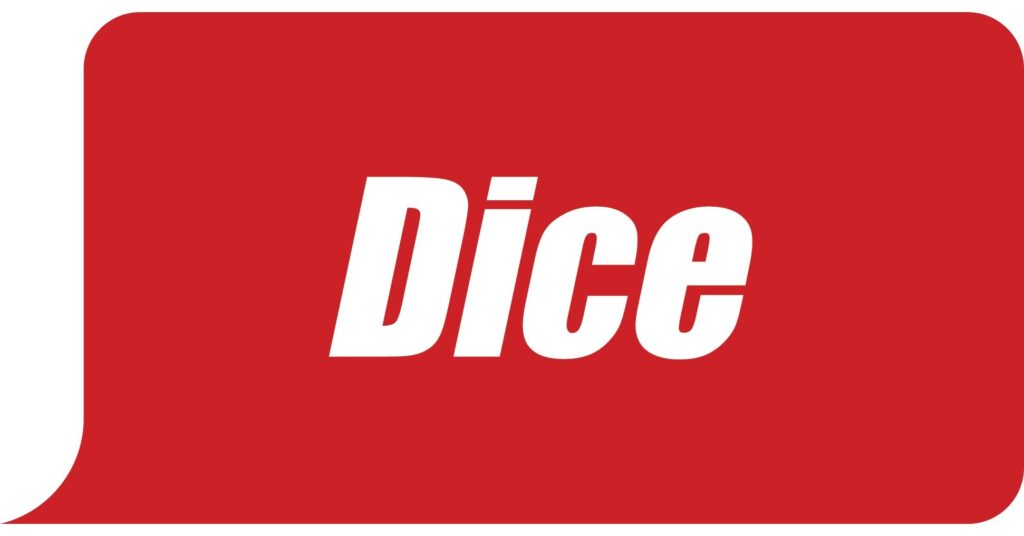
Tips for job seekers on Dice:
On Dice, build a tech-focused profile, highlight in-demand skills, use keywords, customize applications, showcase certifications, network with tech professionals, and follow market trends to maximize job opportunities.
Main Features:
- Tech-Centric Job Listings: Dice specializes in technology and IT job postings, offering positions in software development, data science, cybersecurity, and more.
- Skill Assessments: Candidates can take skill assessments to prove their abilities and increase their chances of landing a job.
- Industry-Specific Alerts: Dice sends tailored job alerts based on your skills, qualifications, and experience.
Pros:
- Excellent for tech professionals and job seekers with specific technical skills.
- Offers career resources like salary research and career advice.
Cons:
- Limited to technology and IT roles, which means fewer opportunities for non-tech job seekers.
- Narrower job pool compared to more general job boards like Indeed or LinkedIn.
Conclusion
With countless job opportunities available across the internet, it’s essential to choose the right platform that aligns with your career goals. Whether you’re a seasoned executive searching for high-paying roles on Ladders, a startup enthusiast using Wellfound, or a freelancer looking for projects on Upwork, these top 10 job search sites for 2025 provide diverse options to suit every type of job seeker. Explore these platforms to take the next step in your career today!
Struggling to Craft Your Story?
Get Personal Cover Letter Tips on Jobright.ai
Leverage Our AI Co-pilot Orion and receive personalized cover letter inspiration for every position
Try Orion for FREE
